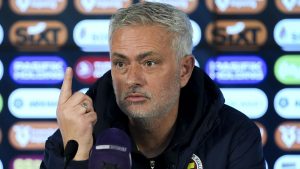UK lawmakers’ election rejection means MORE strife for the pound and UK economy

The Brexit-pummelled pound – the worst-performing major currency of the G10 – is going to fall further following the Opposition leader’s instruction to his party to abstain on Monday’s general election vote.The bleak warning is from Nigel Green, CEO and founder of deVere Group, one of the world’s largest independent financial advisory organizations.It comes as the leader of the opposition Labour Party has told his party to come together to block Monday’s parliamentary vote on a general election on December 12, which was called for by Prime Minister Boris Johnson on Thursday.If parliament does agree to the election, in return, Mr Johnson will afford them more time to scrutinize the Brexit Bill which was given the green-light by the House of Commons on Tuesday – but the timetable for its passing was not.The UK’s Fixed Term Parliaments Act, (FTPA) requires that two-thirds of all 650 lawmakers must support holding a snap election. This is the third time Mr Johnson has tried to have a general election since taking office.Mr Green warns: “Whether it is Boris Johnson’s preferred date of December 12or a few weeks later, a general election is looming on the horizon for the UK.“An election in itself will create further woes for the already Brexit-battered British pound as they always fuel uncertainty.“We immediately saw this in action on Thursday when sterling – the worst-performing major currency of the G10 – fell from its recent multi-month highs and took a turn lower following the announcement Boris Johnson will seek a general election before Christmas.“Whilst the beleaguered pound does have much of the Brexit shenanigans already priced-in, Jeremy Corbyn’s decision to instruct Labour MPs to abstain or vote against Monday’s general election vote will ramp up the uncertainty further – thereby extending the pound’s losses.“Should Labour adhere to Mr Corbyn’s instructions, the PM would then not have the numbers – as abstentions count against under the FTPA – and no election will take place on December 12. This begs the question: when will the election take place?”He continues: “The significant drop in the value of the pound since the referendum has contributed to reducing people’s purchasing power and a drop in UK living standards. Weaker sterling means imports are more expensive, with rising prices being passed on to consumers.“The fall in the pound is good for exports some claim, but it must be remembered that around 50 per cent of UK exports rely on imported components. These will become more expensive as the pound falls in value.“A low pound is, of course, bad news for British holidaymakers, travellers abroad and the millions of British expats – with holidays and living/retirement overseas more expensive.”Mr Green goes on to add: “Furthermore, the Brexit deadlock continues which is causing the UK economy to haemorrhage investment, confidence and opportunity.“Job-generating, tax-paying, wealth-creating businesses need certainty.”The deVere CEO concludes: “It’s an abuse of the democratic system for the opposition to not allow a general election to take place to break the deadlock.“Many voters will believe that the reason why Jeremy Corbyn is pursuing this path is that despite the most chaotic political turmoil this country has faced in generations led by the ruling Conservatives, he is still unlikely to win a general election.”“Mr Corbyn and others need to stop playing games. The pound and the UK economy are losing their edge in a competitive global economy with the grinding Brexit politicking.”




